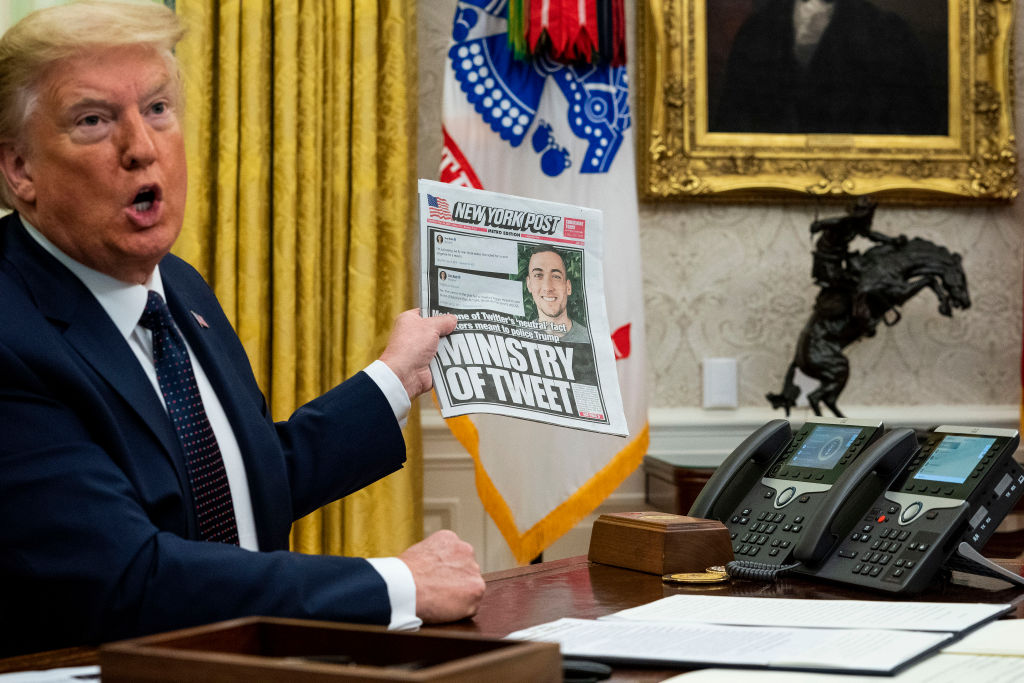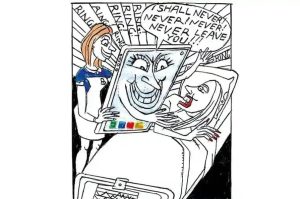Donald Trump has hardly covered himself in glory in his latest public responses to the pandemic. His calamitous Axios interview with Australian journalist Jonathan Swan will probably enter the presidential history books for all the wrong reasons.
Nevertheless, the news that Facebook has removed a video of the President’s latest appearance on Fox News on the grounds that it spreads ‘misinformation’ about COVID-19 should raise alarm bells in the ears of anyone who cares about free speech. Twitter has similarly frozen a Trump campaign account until the video is removed.
Facebook has taken issue with Trump’s comment that children ‘are almost immune’ from coronavirus. They have labeled this remark as ‘harmful misinformation’ and therefore taken it upon themselves to ensure that nobody can view the video on their platform.
This heavy handed response is a step up from the platform’s previous policy, announced in May, which involved labeling potentially misleading content with a ‘warning’. Only when content is in danger of causing ‘imminent physical harm’, the policy claimed, should it be removed.
Whether Trump’s remarks will cause children to come to ‘imminent physical harm’ is up for debate. Not only did he qualify his statement with the word ‘almost’ — an admittedly rare moment of restraint — the jury is still very much out on the science when it comes to COVID-19 and children. There has not been a single case of a child under 10 passing on coronavirus in contact tracing carried out by the World Health Organization and a study by Britain’s Royal College of Paediatricians and Child Health found the evidence ‘consistently demonstrates reduced infection and infectivity of children in the transmission chain’.
Donald Trump was offering an outspoken opinion on an inconclusive topic — many will disagree with him but do his remarks really deserve censorship? As with so much of the science behind the pandemic, there’s no way yet of knowing for certain whether he was peddling so-called ‘misinformation’.
Facebook has plowed more than $1 million into assembling a global army of fact checkers to monitor its content, but, as this decision painfully shows, any assessment of the facts always requires a degree of subjective judgment. It’s simply not possible to police content in an entirely objective, apolitical way.
[special_offer]
‘Misinformation’ — a word that is almost Orwellian in tone — is defined so vaguely that it can be applied increasingly liberally to all manner of online content. Heaven forbid that individual users might deploy their own reasoning skills to assess whether the information they are consuming is useful or valuable. Once again consumers are being treated as easily led fools who can only be trusted with news sources that have been vetted on their behalf.
Mark Zuckerberg is still reeling from the drop in share price and advertising revenue that occurred after the Stop Hate for Profit campaign when he refused to censor Trump earlier in the pandemic. Was Facebook waiting for an opportunity to show its contrition? The decision to remove the Fox video smacks more of big corporate PR than it does a genuine defense of the public interest.
By appointing itself as a cultural and political arbiter, Facebook finds itself on a slippery slope. It must wield its power carefully if it doesn’t want to hemorrhage users who are tired of being patronized.
This article was originally published onThe Spectator’s UK website.


















